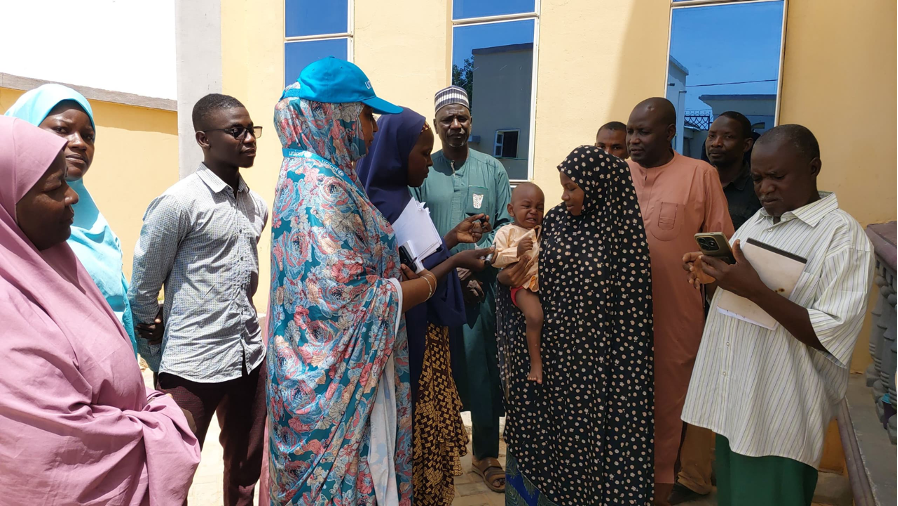Committees at the Forefront in Maradi
In Maradi, community committees track and manage refusals, addressing misconceptions that keep families from vaccinating their children. This hands-on approach boosts trust and acceptance of the polio vaccine.
FIGHT AGAINST POLIOMYELITIS IN MARADI: MONITORING COMMITTEE, A FOREFRONT PLATFORM FOR ACCEPTANCE OF POLIO VACCINATION
Like other neighboring countries such as Burkina Faso, Mali, Nigeria, Cameroon, and Chad, Niger continues to record polio cases. According to the World Health Organization (WHO), Niger has been facing confirmed circulation of the poliovirus since 2018 in several health districts across the country’s eight regions. Given this situation, the government, with its technical and financial partners, led by WHO and UNICEF, has organized multiple vaccination responses. In support of these responses, and in line with its mandate, UNICEF provides backing for social and behavioral change activities to reinforce community acceptance of polio vaccination. To this end, at the core of the strategies deployed is community monitoring through 1,492 committees, each engaging six community leaders—including youth—to collect and respond to misinformation, manage refusals, and track the broadcasting of radio programs during supplementary polio vaccination activities.
Maradi, the second-largest region in terms of recorded refusals during the 2023 vaccination response—with 18.24% of the 965 cases nationwide—was the focus of attention during the national polio vaccination days in July 2024, where 92 refusal cases were recorded. The Maradi City district accounted for 64.13% (59) of the region’s refusal cases. The approaches used in managing refusals in Maradi City involved the participation of monitoring committees (71.19%) and that of the social mobilization and refusal management sub-committee at the district level (28.81%).

Photo credit: ©UNICEF Niger/Maradi_Ville_Maradi_Juillet 2024/Naino Issaka
Among the 12 monitoring committees in the Maradi City health district, the CSI Ali Dan Sofo (ADS) committee, made up of both men and women committed to children’s well-being, played a crucial role in accepting polio vaccination within their area. United around a single shared goal, Saminou Ousmane, Samaila Boukari, Rahamou Yahaya, Laouali Abdou, Zaharadine Saminou, and Issa Adam strive to save and protect lives from polio.
Recognizing the importance of their roles, Saminou Ousmane declares, “As the neighborhood chief, it is my duty to be part of this committee; I am proud to oversee my community’s health,” and Rahamou Yahaya, representing women, adds, “I am a mother; this fight is my fight.”
Having been involved in managing six refusal cases handled by the committee during the national polio vaccination days and witnessing the reasons given by those involved, 23-year-old youth leader Zaharadine Saminou from the ADS neighborhood refutes the rumors circulating in his area and beyond: “No, I do not believe the rumors about the polio vaccine causing infertility or the harmfulness of repeated doses because my parents had me vaccinated,” he notes. “I know polio exists,” he concludes.
Each member of the ADS Health Center monitoring committee—whether the neighborhood chief, imam, women’s representative, committee president, or youth leader—took “pride” in contributing to their community’s health through awareness-raising and advocacy for polio vaccination acceptance. In this regard, they call on UNICEF Niger to support the government in making essential inputs (vaccines, medicines, and other supplies) available to protect maternal and child health.

